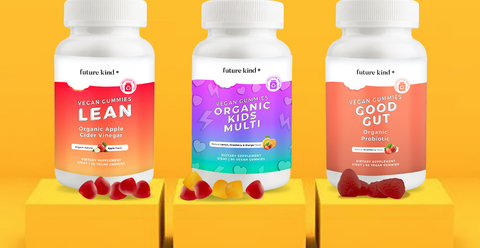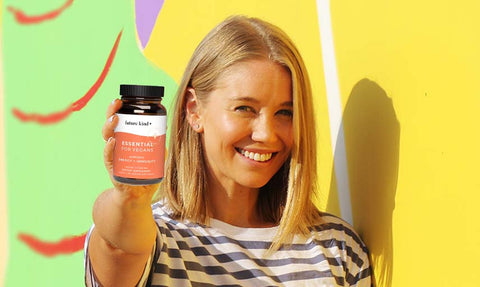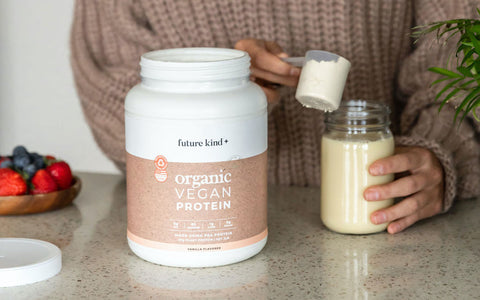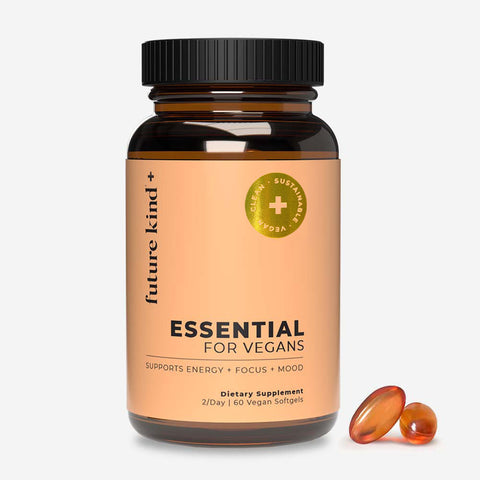When A-list actress and health guru Gwyneth Paltrow announced she invented veganism, the world was confused, if just for a brief moment – the news came on April 1st, after all.
Far from being a Hollywood celebrity fad, the concept of Veganism has a long history behind it, going back centuries. But it is also true that in the past decade, Veganism has entered the mainstream like never before, transforming the face and mission of the vegan movement forever.
The current definition of veganism describes it as a way of living that seeks to exclude, as far as possible and practicable, all forms of animal exploitation and cruelty, for any purpose.
What Does It Mean to Be A Vegan?

So, what do we mean when we say Veganism seeks to exclude all forms of animal exploitation?
What is a vegan, exactly?
Animal exploitation is defined as any use of animals for personal gain, be it food, clothing, beauty or household products, and entertainment.
The Plant-Based Diet

Vegans follow a plant-based diet, avoiding meat, fish, dairy, eggs, or any other animal byproducts.
There are different reasons why vegans choose not to consume these foods, but they are mainly ethical: the animal agriculture industry is seen as cruel, exploitative, and unnecessary for society.
Choosing veganism is a form of boycott, allowing vegans to take a stand against what they see as immoral and harmful, giving a voice to the voiceless through their dollar.
Health benefits of a vegan diet
For some people, the thought of not consuming any of these products may seem borderline absurd – but animal products make up just over 30% of a person’s daily calorie intake.
Plant foods such as potatoes, grains, legumes, and greens are vital for our bodies’ health, and science has proved time and time again that we need to consume way more of them to meet our nutritional needs.
It only makes sense that a balanced vegan diet would be the optimal human diet, largely reducing our risk of autoimmune diseases like heart disease, America’s number one killer.
Cruelty-Free Closets

Vegans also choose to avoid all animal products used in the clothing industry, which is not only considered unnecessarily cruel, but also incredibly damaging to the environment.
Vegans abstain from buying leather, suede, fur, down, wool, and silk normally used in coats, bags, jackets, shoes, jumpers, or wallets.
Vegan clothing was definitely not easy to come by ten years ago. Vegans were restricted to a handful of brands with small catalogs and hefty shipping fees, but in the past few years the vegan clothing industry has experienced a major shift.
Pleather is everywhere, from H&M to GAP, and long-running shoe brands like Dr. Martens and Vans have been releasing vegan-friendly footwear to broaden their market appeal. Cruelty-free clothing has never been easier to access!
Vegan Beauty

Animal byproducts are also featured heavily in the beauty and cosmetic industry.
Banning animal testing was just the start; now 100% vegan-friendly makeup is the new frontier. Hard-to-pronounce animal products such as carmine, shellac, guanine, gelatin, and beeswax can be found in most popular beauty brands, including hair care and skincare companies.
Along with choosing beauty products that are labeled cruelty-free, vegans opt for animal product-free options – which are now flooding the market. High street companies like NYX and KIKO have been offering vegan-friendly makeup products for years, but brands like Kat Von D, LUSH, and e.l.f. are truly leading the way in providing 100% vegan, sustainable beauty products for all.
History of Veganism

First came vegetarianism, the popular diet and philosophy promoting the avoidance of meat and fish.
The Ancient Greek philosopher and mathematician Pythagoras has been hailed as the father of vegetarianism for centuries, while the modern vegetarian movement began in England in the mid-1800s.
A vegetarian will usually not eat any meat, fish, or byproducts of slaughter like gelatin, but will still consume animal products such as dairy, eggs, and honey.
The Vegan Society and the Modern Vegan Movement
So, what is the difference between a vegan and a vegetarian?
The Vegan Society was the first to make the distinction clear, with its founder Donald Watson coining the term “vegan” in 1944. Born as a fringe movement existing at the edge of mainstream society, veganism has managed to become one of the most talked about topics of the past decade.
Social media played an important role in spreading the vegan message to the masses, gradually catapulting the lifestyle into the mainstream.
In fact, just as the 2010s have been a golden age for social media, such has also been the case for veganism, which has been on the rise every year throughout the decade.
This is not a coincidence: according to our recent Instagram poll, 52% of vegans give social media influencers and YouTube credit for their discovery of the lifestyle.
What is the Difference Between Veganism and a Plant-Based Diet?

The rise of social media also brought a new, health-focused trend: the plant-based diet.
Following the definition of veganism, adopting a plant-based diet doesn’t necessarily make you a vegan, it’s your ethical beliefs that make you part of the movement.
Someone following a plant-based diet might eat the same foods that a vegan does, avoiding all animal products, but they do so as part of a short-term diet, striving to make healthier choices unattached to any philosophical belief.
A plant-based dieter might purchase cow leather or use makeup containing animal byproducts, actions that self-identified vegans will always do their best to avoid.
What Can You Eat as a Vegan?

So, if we take away animal products from the picture, what do vegans eat, exactly?
In short, everything else. Refined and whole grains like rice, pasta, and bread make up the foundation of a vegan diet, followed by heart-healthy legumes like beans, chickpeas, soy, and lentils for protein, and a wide variety of nuts, seeds, fruit, and vegetables.
Meat and dairy substitutes also have a role to play in a vegan diet, often as occasional treats for health-conscious vegans.
Do vegans eat eggs?
Vegans do not eat eggs, as they are animal products produced by hens. Cage-free, “humane” eggs are also considered off-limits, as all types of animal agriculture are considered unethical.
Do vegans eat honey?
This is often a contended issue, but as a general rule, vegans avoid eating honey as it’s still an animal product. The few vegans who decide to consume honey will do so as a conservation effort, but they are definitely a small minority within the movement.
Do vegans eat cheese?
All forms of dairy, cheese included, are not suitable for a vegan diet. Cheese is often not suitable for vegetarians either, as many types of popular cheese contain rennet, a set of enzymes found in the stomach of cows.
Do vegans use palm oil?
Some vegans don’t consider palm oil vegan-friendly, as palm oil production is a main cause of deforestation and loss of native orangutan habitat, leading to unnecessary animal death.
However, this product is still vegan by definition, as it’s a plant food derived from palm trees. Not all vegans think the same, and while some vegans will do their best to avoid purchasing palm oil, others will have no problem consuming it!
Is candy vegan? Is wine vegan? What about cereal?
Sometimes, animal products show up in the ingredients list of unexpected food products, like candy, beer, wine, cereal, or even sliced bread.
Dairy byproducts like whey are routinely added to white bread and chips, most commercial cereals contain lanolin (wool secretion), wine is often clarified with casein (dairy byproduct) or albumin (protein from egg whites), and gelatin can be found in all sorts of candy products.
While these animal products might not immediately register as such to the untrained eye, vegans avoid purchase mishaps by looking for a vegan-friendly logo, or running a quick check through Barnivore or Is It Vegan.
Into the Mainstream – What is Veganism in 2020?

When asked about the gradual rise of veganism throughout the past decade, and how it has affected long-term vegans’ lives, a Facebook user commented:
“In the past ten years Veganism has gone mainstream, which is so exciting! I put it down to the rise of social media, which makes sharing information really easy. Supermarkets, cafes, and bakeries know that there's a demand for vegan products. I definitely feel happier now telling a waiter in a restaurant that I'm vegan. Ten years ago they might not have known what the word meant!”
The “demand and supply” system has turned veganism into one of the biggest diet and lifestyle trends of the late 2010s, making vegans’ lives easier and encouraging more and more people to give up animal products. Vegans are confident enough to push the movement forward, opening new vegan businesses and charities that go further into the mainstream:
“Three years ago I opened a vegan restaurant and it's been really successful. I wouldn't have done it before because I knew Veganism wasn't big enough for it to work”.
The meaning of veganism might not have changed, but its influence on society certainly has. With cultured meat and new leather alternatives being developed year after year, the near future is looking more vegan-friendly than Donald Watson could’ve ever imagined.
So, are you feeling inspired and ready to give veganism a shot? You can find out how to go vegan here!








Comments (0)
There are no comments for this article. Be the first one to leave a message!